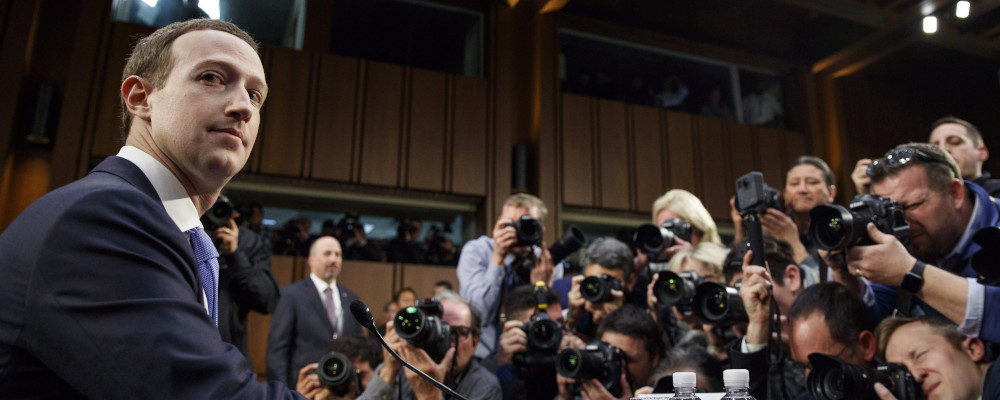Canada faces a social dilemma.
It’s easy to think of things to worry about when it comes to “new” media in Canada. Maybe what popped into your mind was fake news, the addictiveness of social media, or Big Tech data collection. Or maybe you worry about the failure of established media companies to adapt and compete. Or the failure of the Canadian government to promote Canadian content in the 21st century media market as effectively as it did with TV and radio.
MORE SIGNAL. LESS NOISE. THE HUB NEWSLETTER.
I’ve deliberately avoided the phrase “traditional media” because traditional media was once new, and people were just as worried about it back then. The invention of cheap paper made from wood pulp or straw caused a panic about the ability of young people to resist the influence of… the novel.
Novels were low-quality content that shouldn’t be published. Novels were blamed for violent crimes. People worried novels would ruin the ability of young people to enjoy real-world relationships. Goethe’s The Sorrows of Young Werther was blamed for suicides. Fake news. Declines in social and mental health. Social unrest. But today, novels are “traditional” media that many parents wish they could get their kid to pick up.
These recurring (could we go so far as to say “traditional?”) concerns about the effect of new media on society inevitably lead to calls to Do Something about new media.
“Do something” seems to be the most concrete idea behind the federal government’s little-known but unpopular Bill C-10, which aims to impose on internet content the sort of control the government has long had over broadcast media. But “do something” is also the idea behind calls to “hit big tech in the wallet,” as my Hub colleague Howard Anglin recently put it.
If something should be done, who should do the doing?
These decisions should be personal and caring. But that’s why they’re no place for lawmaking and regulation.
Anglin says that paternalism suggests a human, caring motive, not just more of the “cold and impersonal” censorship of algorithms. But “caring” is personal, while “cold and impersonal” is the calling card of the rule of law.
The alternative to the rule of law is the arbitrary rule of people making decisions based on their personal values and judgement. That tends to lose its appeal when governments change. If I’m comfortable with a Justin Trudeau government regulating online content, odds are that I won’t also be comfortable if someone like Andrew Scheer takes the reins. That said, cold and impersonal algorithms don’t feel much better than personal meddling when we get sideswiped by an algorithm.
Anglin suggests the solution is for the government to pursue the right sort of regulation rather than the wrong sort of regulation. He calls for restrictions on data collection and sharing to reduce the revenue generated by keeping eyes on screens. He admits this may cause some platforms to leave Canada, but says it’s a small price to pay. And Anglin calls for government limits on children’s use of social media, which he justifies with a grab-bag from the bin of new media concerns.
I see the appeal behind these proposals. I might even choose them for myself and my family. For example, I’m a member of a Mighty Networks community and would recommend switching if your online social scene is willing to switch with you and can afford it.
But why should I, or Anglin, or anyone presume to make decisions on behalf of people with fewer choices than we have? Ads and algorithms can certainly be annoying, but they also allow services to be provided at a price everyone is able to pay. We don’t make people with too few choices better off by taking choices away.
Likewise, while I don’t buy into general panic about screen-time, I believe there’s value in boredom, I think that kids learn and socialize best face-to-face, and I find it plausible that resilience suffers if most of your dopamine hits come from something as effortless as pointing your eyeballs at a phone.
But I can’t get behind government-mandated age limits on social media. Families are the relevant subject matter experts when it comes to the choices they face. No politician or bureaucrat, no matter how credentialed, knows more about your family, and what will or won’t work for you, than you do.
There are definitely downsides to social media, maybe especially for children. But online communities also fill gaps in real-world, meatspace communities. Kids might have an odd hobby, or an unusual identity, or even a rare illness. You can probably find a dedicated community if you live in Toronto, but what if you’re in Timmins? Social media lowers the cost of matching people with others like them around the world. Those connections matter.
Again: families are the ones who should weigh these upsides and downsides to make the final call. Anglin is right about why paternalism has more appeal than cold censorship here. We want these decisions to feel personal and caring. These decisions should be personal and caring. But that’s why they’re no place for lawmaking and regulation.
(Besides, when did forbidding kids from doing something ever work? Do we really believe the government will be better at enforcing rules for children than their caregivers are?)
Our lack of control over the world, and over the lives of others, is frustrating. But we are a country of free and equal people, and so we should not expect to control one another’s actions, nor what outcomes those actions produce. Even when the outcomes include Twitter.
The same lack of faith in consumers that’s behind the Trudeau government’s attempt to control online content lies behind all calls to regulate anything.
The appeal of unloading responsibility for our online choices is undeniable. But it doesn’t seem any healthier than too much time on Facebook.




